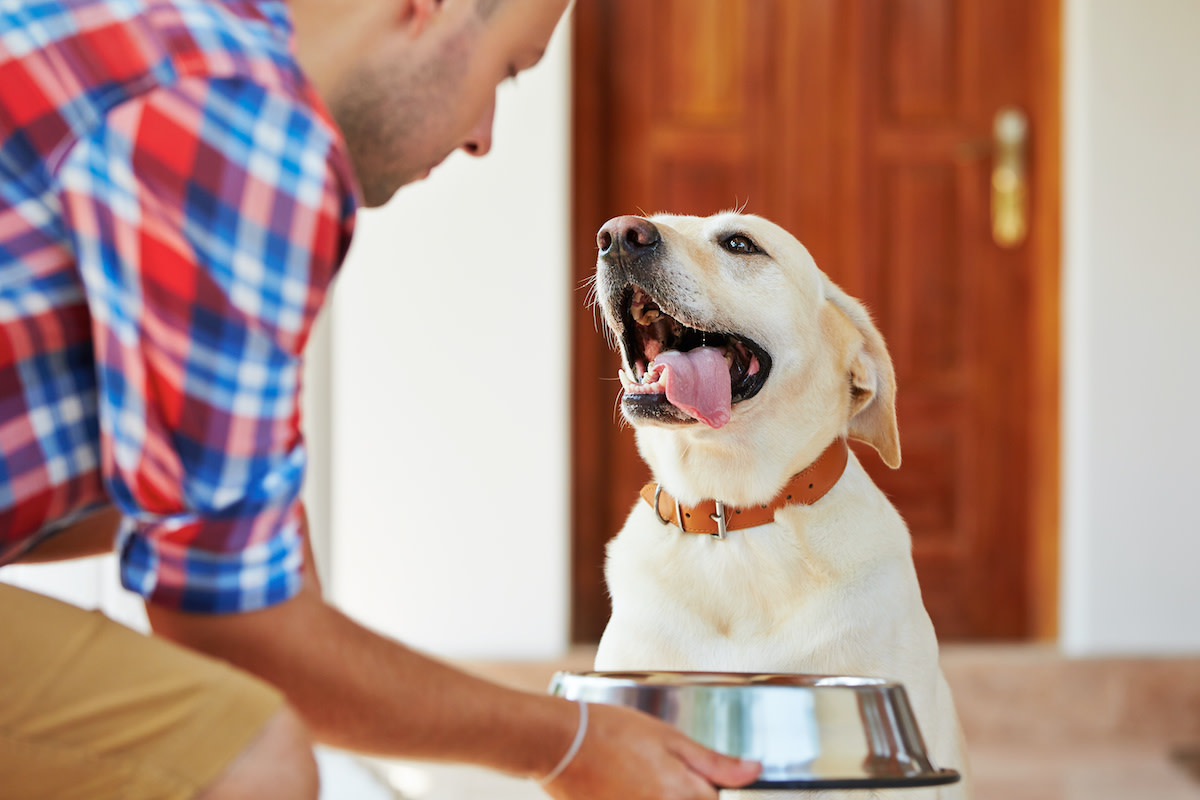Can Dogs Eat Sushi? 6 Sushi Ingredients Dogs Should Avoid
Written by MasterClass
Last updated: Apr 8, 2022 • 4 min read
Sushi might contain several ingredients that can enhance a dog’s diet, but it can also be a risky snack that could harm your pet in the long term. Read on to learn which ingredients in sushi your canine companion should avoid, as well as signs of adverse reactions in your dog.
Learn From the Best
What Is Sushi?
Sushi is a Japanese dish that combines short-grain sushi rice (white rice or brown rice), sheets of nori seaweed, and a filling of raw seafood, vegetables, and other ingredients. Common sushi dishes include sushi rolls, hand rolls, and sashimi; popular sushi accompaniments include soy sauce, grated daikon radish, pickled ginger, and wasabi.
Can Dogs Eat Sushi?
While feeding your pet certain types of fish and vegetables can boost your dog’s diet and present several health benefits, sushi comes with considerable risks. Although fresh sushi can be a good source of protein, omega-3 fatty acids, and other nutrients, other popular sushi ingredients can cause adverse side effects. In large quantities, certain fish can even be toxic to your canine companion.
If you choose to feed your dog sushi, it’s advisable to learn as much as you can about the ingredients before deciding whether it’s safe for your pet. Also, feeding sushi to dogs should never be a substitute for their daily dog food.
6 Common Sushi Ingredients Dogs Should Not Eat
Some common sushi ingredients, such as cucumbers and other green vegetables, can be nutritious dog treats in moderate portions; however, others are dangerous for dogs. Here are several popular sushi ingredients that could put your pet at risk for health problems:
- 1. Avocado: While avocado flesh is safe for dogs to eat in small quantities, the skin of an avocado contains the bacteria persin and, therefore, poses a toxicity risk to your pooch. Avocado skin is not toxic to humans; however, it has a very unpleasant taste. A common ingredient in California rolls (a popular sushi dish), avocados are unlikely to make their way into California rolls in restaurants with their skins still intact. But if you are making sushi at home and there’s a chance your dog might sneak a piece, take care to avoid including any skin in your rolls. Additionally, it’s wise to always wash avocados (for human or canine consumption) before cutting them to avoid transferring any bacteria on their skin to their flesh.
- 2. Cream cheese: High in fat, cream cheese can negatively affect a canine. While a certain amount of fat is good for dogs, too much can lead to weight gain, obesity, heart problems, and pancreatitis. It’s essential to know the fat content of the cheese you give your dog and to keep track of how much cheese your dog consumes.
- 3. Mango: Although a mango is a relatively healthy fruit for canine consumption, a mango is high in sugar, which can boost your pet’s glucose levels and increase their chances of rapid weight gain and obesity.
- 4. Salmon poisoning: Even sushi-grade raw seafood, raw salmon, and raw fish can pose several health risks to a dog—the most dangerous threat is that raw fish could contain harmful bacteria, tapeworms, roundworms, and flukes. Some common bacterial infections associated with the consumption of raw fish include salmonella and listeria, both of which could damage your dog’s immune system to the point of becoming a deadly threat.
- 5. Tempura: Sushi rolls featuring tempura include deep-fried batter and, commonly, spicy mayonnaise or other sauces. While tempura rolls are a delicious human food, the excess fat and sodium can be detrimental to your canine companion and could cause them to develop sodium-ion poisoning if they ingest a large quantity.
- 6. Wasabi: Some types of sushi come with wasabi, a Japanese horseradish paste that can be harmful to a dog’s digestive system.
Signs Your Dog Is Having a Bad Reaction to Sushi
If dog owners choose to feed their dogs sushi or other human foods as an occasional treat, it’s important to choose plain ingredients that are safe for dogs. Additionally, you should monitor your pet closely for signs of allergic or gastrointestinal responses after the first small serving. Here are a few common adverse reactions to sushi for dogs:
- Constipation: Sushi rice is high in fiber, which can help regulate your pet’s metabolism, bowel movements, and gut biome; however, large amounts of rice can cause blockages in a dog’s digestive tract. Constipation should naturally subside within a few days—if it doesn’t, consult a veterinarian for treatment.
- Distended belly: A swollen abdomen could signify several things, although you should take your pet to the vet if they present this symptom after consuming sushi or raw fish. A distended belly, scooting, and severe gastrointestinal issues can be signs of dangerous bacteria or parasites in your pet’s system.
- Loose stools: Several common ingredients—such as tempura, wasabi, and certain types of raw fish—in sushi dishes can cause digestive upset. Signs to watch out for include a reduced appetite, loose stools, and vomiting.
Before Sharing With Your Pooch
Certain human foods can cause adverse reactions in canines, so always consult your veterinarian to determine whether it is safe to add these foods to your pet’s diet. This article is for educational and informational purposes and is not a substitute for medical or dietary advice.
Want to Learn More About Training the Goodest Boy or Girl?
Your dream of having a dog who understands words like “sit,” “stay,” “down,” and—crucially— “no” is just a MasterClass Annual Membership away. The only things you’ll need to train up a well-behaved pup are your laptop, a big bag of treats, and our exclusive instructional videos from superstar animal trainer Brandon McMillan.
